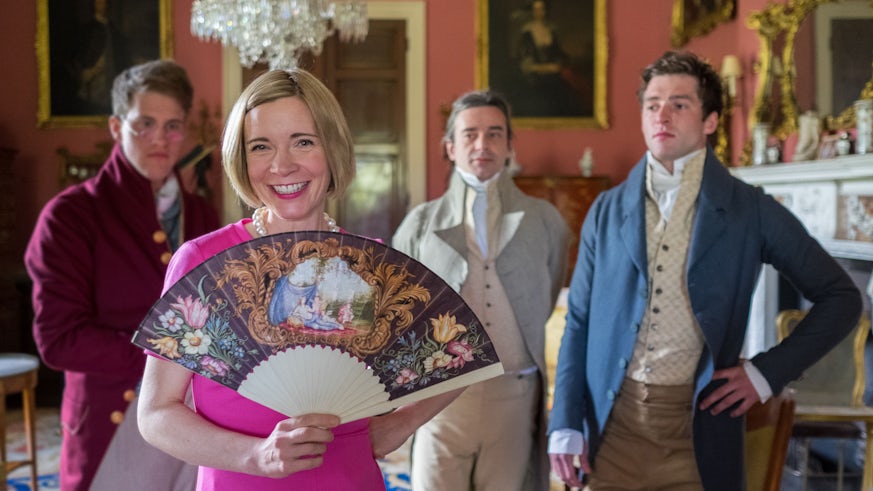Cardiff academic helps reveal the ‘New’ woman of late-Victorian era
15 October 2015

Academic from Cardiff University’s School of English, Communication and Philosophy contributes to new BBC programme
Professor Ann Heilmann, who lectures in English Literature at Cardiff University’s School of English, Communication and Philosophy, has contributed to a new BBC Four programme ‘A Very British Romance’ with historian Lucy Worsley.
Author of New Woman Fiction: Women Writing First-Wave Feminism (Palgrave) and Neo-Victorianism: The Victorians in the Twenty-First Century, 1990-2009, Professor Heilmann’s
research is concerned with Victorian gender relations and the way in which the
Victorians are re-imagined in today’s culture and literature.
The Fellow of the Learned Society of Wales joined Lucy Worsley at Haddon Hall, often seen on screens for remakings of romance classics
such as Jane Eyre and Pride and Prejudice, to talk about how the late-Victorian New Woman movement, both challenged traditional models of female domesticity
and reconceptualised romance with a modern (New) man.
In the new three-part programme, Lucy Worsley delves into the history of romance to reveal how even our most intimate thoughts and feelings have been affected by social, political and cultural ideas. In this second episode, Lucy discusses the Victorian age to uncover the forces shaping our very British happily-ever-after.
The second programme (which premieres on BBC 4, Thursday 15 October 9pm) takes us from the Georgian into the Victorian period of remarkable writers from the Brontë sisters to Ellen Wood and HG Wells.
Speaking of her involvement in the programme, Professor Heilmann said, “I enjoyed the opportunity to consider how heterosexual courtship rituals changed in the period and under the influence of the New Woman. Women writers of the time wanted to encourage their female readers to lead fuller, educationally and professionally more fulfilled lives before they thought about settling down. In our discussion of the New Woman and late-Victorian feminism we tend, therefore, to focus on women’s social and political move away from heterosexual entanglements leading to marriage and motherhood. In New Woman fiction ‘romance’ is often the first step to an independent, strong-willed, gifted heroine’s downfall
For many middle-class girls and women, however, it was the conjunction of widening their horizons, possessing greater freedom of movement, and forming new models of friendship and ‘romance’ with companionate men that was so appealing about New Woman ideas.”
A Very British Romance is available to watch or download on BBC I player.